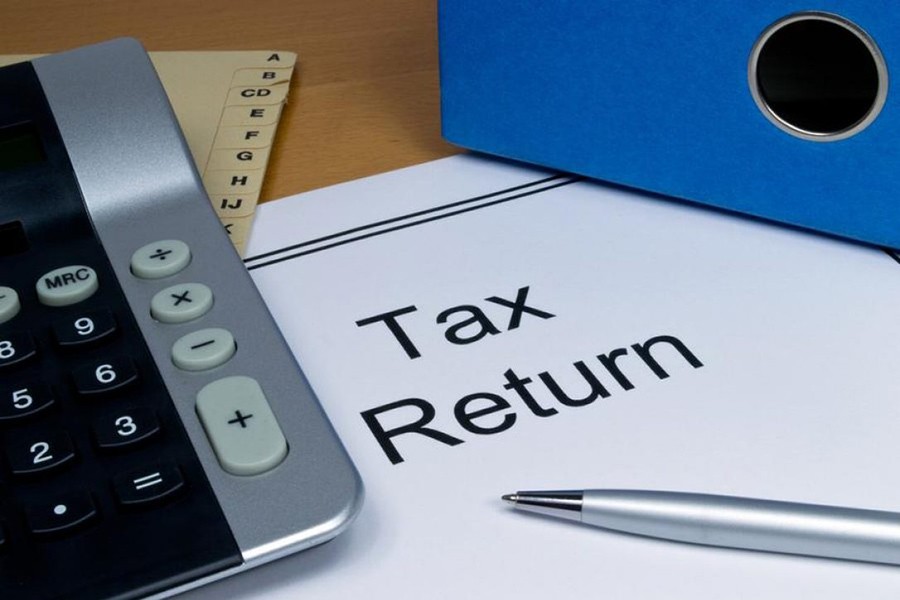The National Board of Revenue (NBR) will find out the TIN (tax-payers’ identification number) holders who are not submitting tax returns despite having taxable income, its chairman said.
Mosharraf Hossain Bhuiyan said some people use TIN for different purposes, including for house purchase, but do not submit tax returns.
"We will see whether the TIN holders are submitting tax returns," he said.
He made the announcement at a pre-budget meeting on Monday.
The NBR chairman, however, said the tax authority will not take any steps that would hurt business.
NBR member (income tax policy) Kanon Kumar Roy echoed, saying many people use fake TINs for land registration and use of credit cards making it is difficult for the authority to detect.
The Institute of Chartered Accountants of Bangladesh (ICAB), the Institute of Cost and Management Accountants of Bangladesh (ICMAB) placed proposals for the budget for fiscal year 2019-20.
Additionally, the Bangladesh Freight Forwarders Association, the Bangladesh Shipbreakers Association, Bangladesh Ship Builders Association, the Dhaka Taxes Bar Association, the Khulna Divisional Tax Lawyers Association, the Institute of Management Consultants Bangladesh, the Institute of Architects Bangladesh, and the Bangladesh Indenting Agents Association placed their respective proposals.
Responding to the pre-budget proposals of the ICAB, the NBR chairman said the ratio of direct tax should be increased at proportionate rates, and the professional body can play an important role in this connection.
"As you said, currently 1.6 million to 1.8 million taxpayers submit tax returns out of 4.0 million TIN holders. The combined efforts of stakeholders and taxmen could encourage the TIN holders to submit tax returns," he said.
The Board is working on increasing the country's tax-GDP ratio through expansion, he said.
He urged the tax lawyers to encourage taxpayers by lowering their return processing fees.
Speaking at the meeting, ICAB president AF Nesaruddin suggested automating the tax department to resolve mismatch on the number of TIN holders and tax return filers, and also, reducing physical intervention.
He also proposed strengthening the Board's research wing to develop capacities so that taxmen could analyse the consistency between the GDP (gross domestic product) and the tax-GDP growth in different sectors.
Former ICAB president Md Humayun Kabir said both the ICAB and NBR can join hands to research on the sector-wise contribution to the country's GDP and the contribution of those sectors in revenue.
He said the contribution of agriculture, industry, transportation, and service sectors to the GDP could be analysed with their respective contribution in tax revenue.
Mr Kabir, who chairs taxation and corporate laws committee of the ICAB, said the provision of new VAT law relating to CAs should be amended to ensure their representation.
Abul Kalam Mazumder, president of the ICMAB, proposed including the partnership firms in the category of withholding tax authority in order to deduct tax from house rents under section 53A.
Other proposals of the institute include increasing tax-free investment ceiling for DPS (Deposit Pension Scheme) to Tk 120,000 from the existing Tk 60,000, doubling upward adjustment of conveyance allowance, fixing specific amount of minimum tax instead of variable amount and defining technical knowhow in the tax law.
Bangladesh Indenting Agents Association (BIAA) president Rafiqul Islam sought VAT exemption, which he said would help them be one of the leaders among the country's foreign exchange earners.
The Shipbreakers Association leaders have sought waiver from double taxation on them and the reduction of Advance Income Tax.
The leaders sought waiver of import duties on raw materials of ship builders.
Benapole Clearing and Forwarding Agents Association has sought the relaxation of time on obtaining certificates for capital machinery import.
The Bangladesh Institute of Architects demanded waiver of VAT and keep them in the lower slab in the new VAT law.
The Dhaka Taxes Bar Association proposed increasing the ceiling for wealth surcharge to Tk 35.0 million and reducing the area-wise tax on flat registration fees.


